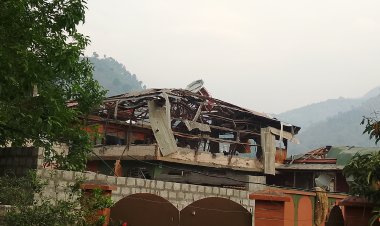Next pandemic may emerge ‘tomorrow,’ warns WHO
The World Health Organization (WHO) has called on governments to invest in measures to address the risk of global contagion, highlighting the need for preparedness amid the potential for future pandemics. According to a statement issued on...

According to a statement issued on Monday, WHO Director-General Tedros Adhanom Ghebreyesus cautioned that another deadly pandemic could emerge as soon as “tomorrow.” He urged nations worldwide to prioritize health security and to finalize the Pandemic Agreement, an international treaty focused on pandemic prevention and response.
The COVID-19 pandemic, which began in late 2019, resulted in an estimated 20 million deaths globally and inflicted over $10 trillion in damage to the global economy, as reported by the WHO.
Ghebreyesus remarked, “A new similar contagion could happen in 20 years or more, or it could happen tomorrow. But it will happen, and either way, we must be ready,” framing the situation as “an epidemiological certainty” rather than “a theoretical risk.”
He further noted that pandemics can lead to social and economic consequences that outweigh those of war, and argued that investments required for health security are “nothing” compared to defense spending.
“All countries need to find a balance in protecting their people from both bombs and bugs,” he added.
On Tuesday, the US unveiled a record-breaking defense budget of $1 trillion, while in March, the European Union introduced plans to mobilize up to €800 billion for military purposes, citing threats from Russia.
Although the ongoing discussions about the Pandemic Agreement at the WHO do not stipulate specific funding amounts from governments, the goal is to enhance global readiness and response capabilities for future health crises.
In a notable shift, US President Donald Trump initiated the withdrawal of the United States from the WHO in January, despite the US being the largest single contributor to the organization historically. His decision to pursue a withdrawal was based on allegations regarding the WHO's management of the COVID-19 outbreak.
Additionally, Trump appointed figures critical of established COVID-19 strategies to significant health positions, including Dr. Jay Bhattacharya, a Stanford University professor known for opposing lockdowns and vaccine mandates, who was designated to lead the National Institutes of Health, and Robert F. Kennedy Jr., a well-known vaccine skeptic who became the Secretary of Health and Human Services.
Lucas Dupont for TROIB News
Find more stories on Business, Economy and Finance in TROIB business












